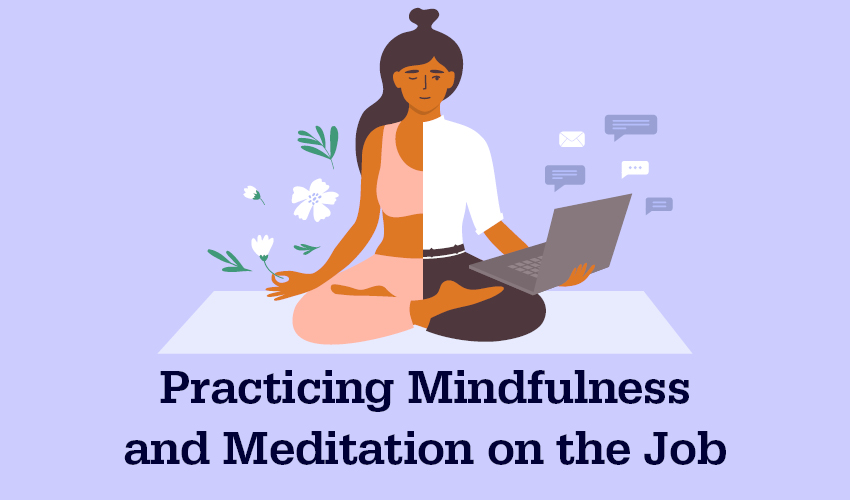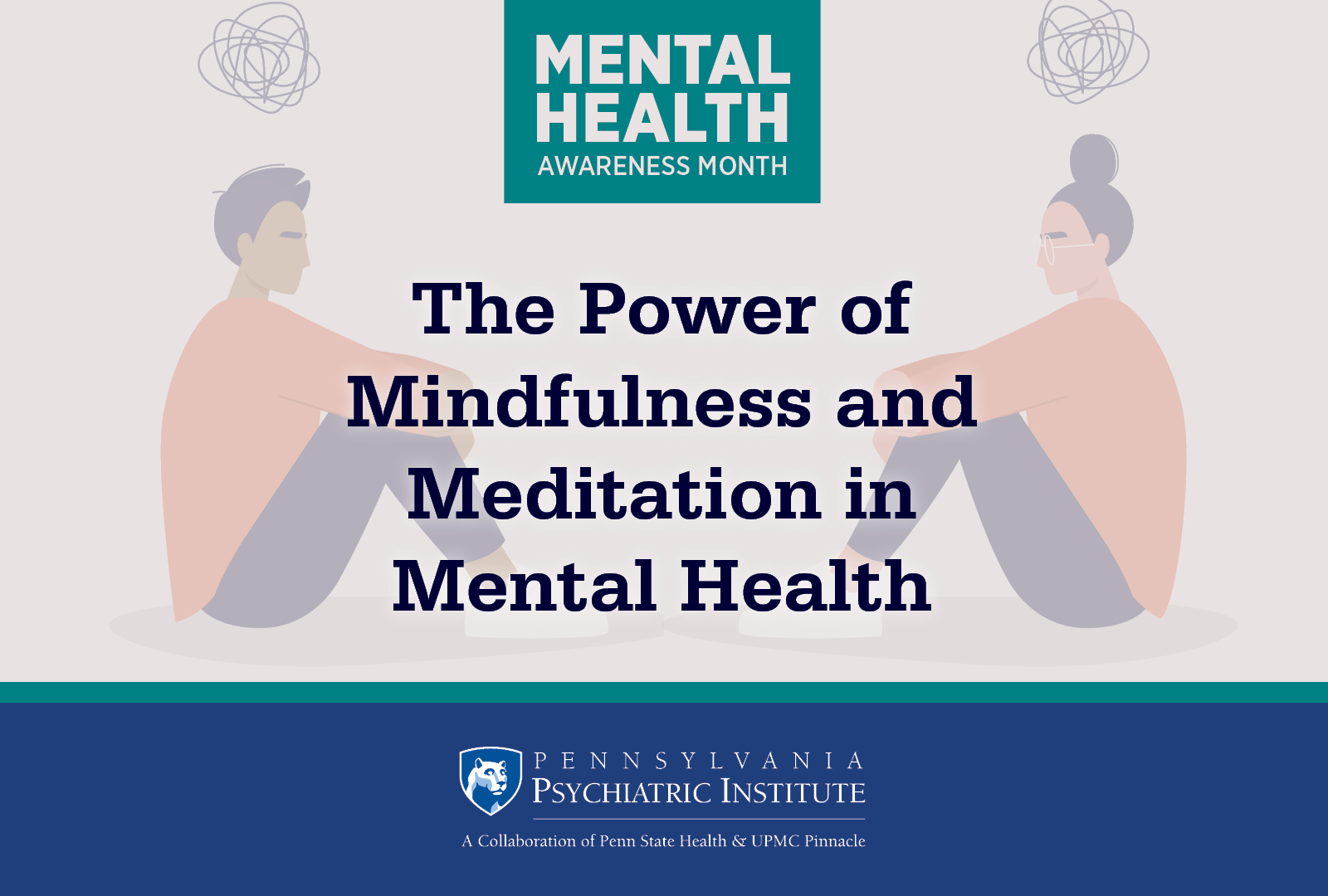During Mental Health Awareness Month, we at the Pennsylvania Psychiatric Institute (PPI) are excited to highlight the profound impact of mindfulness and meditation on mental well-being. These practices have gained significant attention in recent years and for good reason. They offer a natural, accessible and scientifically backed approach to improving mental health, reducing stress and fostering a deeper connection with oneself.
What are Mindfulness and Meditation?
Mindfulness is a mental state achieved by focusing on the present moment while calmly acknowledging and accepting one’s feelings, thoughts and bodily sensations. Meditation, on the other hand, is a practice that involves focusing the mind on a particular object, idea or activity to train attention and awareness. Therefore, it often incorporates mindfulness as a core component.
The Benefits of Mindfulness and Meditation
Reducing stress
Stress is a common contributor to mental health issues. Mindfulness and meditation can help individuals become more aware of their stressors and develop healthier coping mechanisms. In addition, regular practice can decrease cortisol levels, the hormone responsible for stress.
Decreasing anxiety and depression
Both mindfulness and meditation have been found to reduce symptoms of anxiety and depression. By cultivating a nonjudgmental awareness of the present moment, individuals learn to break from negative thought patterns and develop a more balanced perspective.
Improving concentration and focus
Regular meditation has been linked to enhanced cognitive function, including improved concentration and focus. By training the mind to maintain awareness on a single point, individuals can become more efficient in their daily lives.
Enhancing emotional well-being
Mindfulness and meditation practices promote emotional regulation and resilience. They encourage individuals to face their emotions, accept them and learn to respond in healthier ways.
Fostering self-awareness and self-compassion
Both practices can help individuals better understand themselves, their thought patterns and their reactions to situations. This self-awareness increases self-compassion, promoting mental well-being and reducing self-critical tendencies.
Supporting sleep and relaxation
Meditation and mindfulness reduce stress, anxiety and rumination, improving sleep quality and relaxation. A calm, focused mind is likely to fall asleep quickly and stay asleep throughout the night.
Incorporating Mindfulness and Meditation into Your Life
Mindfulness and meditation can be practiced by anyone, regardless of age, background or belief system.
- Choose a time of day when you can dedicate 10 to 15 minutes to meditation or mindfulness practice. Again, consistency is vital, so try to make it a daily habit.
- Find a quiet, comfortable area to sit or lie down without distractions.
- If you’re new to mindfulness or meditation, consider starting with guided practices. There are countless apps, websites and videos available that can help you get started.
- It’s natural to experience resistance or frustration when beginning mindfulness and meditation. However, remember that it’s a process and that, like any other skill, it takes time and practice to develop.
- Connecting with others who share your interest in mindfulness and meditation can provide valuable support and encouragement. Consider joining a local meditation group or attending workshops and classes.

1. Mindful breathing exercises
During short breaks or in-between tasks, take a few minutes to practice mindful breathing. Close your eyes and focus on the sensation of your breath as it flows in and out of your nostrils. If your mind starts to wander, gently bring your attention back to your breath. This exercise can help you stay centered and present, reducing stress and promoting relaxation.
2. Single-tasking with awareness
In a world where multitasking is often the norm, practicing single-tasking with awareness can be a powerful way to incorporate mindfulness into your work routine. Choose one task to complete and devote your full attention to it. As you work, maintain an awareness of your thoughts, feelings and physical sensations without judgment. This mindful approach can boost your productivity and help you stay focused on the task at hand.
3. Mindful communication
Meetings, phone calls and conversations with colleagues offer opportunities for practicing mindfulness at work. While engaging with others, strive to be fully present and attentive. Listen carefully, observe body language and be aware of your own thoughts and emotions without judgment. Mindful communication can lead to more effective collaboration, deeper understanding and improved relationships in the workplace.
At PPI, we recognize the power of mindfulness and meditation in promoting mental health and well-being. As part of our commitment to providing comprehensive mental health care, we encourage individuals to explore these practices and discover their benefits.
Happy Mental Health Awareness Month!

